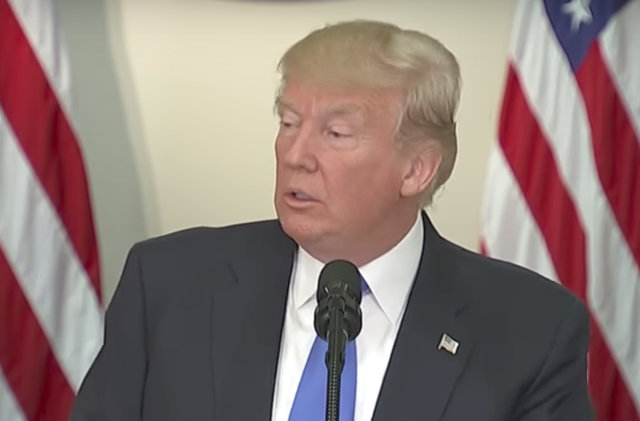
A Washington Post report said that President Donald Trump is possibly asking advisers if he can pardon himself. Can he? To be fair, the question is debatable. Never before has a president pardoned himself. Even the attempt is unprecedented. But the question has been asked before, and tentatively answered: No, he can’t.
Mary C. Lawton, an Acting Assistant Attorney General at the Office of Legal Counsel, examined that issued in a memo dated August 5, 1974–just four days before President Richard M. Nixon resigned. Simply put, someone can’t be a defendant and the judge in the same matter.
“Under the fundamental rule that no one may be a judge in his own case, it would seem that the question should be answered in the negative,” she wrote.
Sure, the Constitution gives the president the “power to grant reprieves and pardons for offenses against the United States, except in cases of impeachment.” That doesn’t mean he can’t apply it to himself, however.
It’s a pretty big deal for the OLC, which advises the president on legal issues, to point out a clear limit on his power. That said, Lawton mentioned some loopholes.
“A different approach to the pardoning problem could be taken under Section 3 of the Twenty-Fifth Amendment,” she wrote. “If the President declared that he was temporarily unable to perform the duties of his office, the Vice President would become Acting President and as such he could pardon the President. Thereafter the President could either resign or resume the duties of his office.”
There’s also Congress. Normally, they can’t grant pardons because they might encroach on the president’s authority–at least that was the argument by Deputy Assistant Attorney General Leon Ulman. But Lawton sees an opening here, in which lawmakers can protect the head-of-state.
She said:
It should be noted, however, that Deputy Assistant Attorney General Ulman’s testimony was based on the theory that Congress cannot enact amnesty or pardoning legislation because to do so would interfere with the pardoning power vested expressly in the President by the Constitution. This would permit the argument that Congress can enact such legislation in those areas where that power is not vested in the President. A congressional pardon granted to the President would not interfere with the President’s pardoning power because, as shown above, that power does not extend to the President himself.
Read the full document here:
Mary C. Lawton memo by LawNewz on Scribd
It’s worth mentioning that this memo came amidst some upheaval at the OLC. Note that Lawton was Acting Assistant Attorney General. She was filling in for Roger C. Cramton, a Nixon appointee. Cramton was pushed out in 1973 after clashing with the president over whether it was illegal to withhold funds appropriated in the budget. After becoming dean at Cornell law school, he told The Cornell Daily Sun in August 1973 that his former boss must resign.
The Washington Post reported Thursday that President Trump was asking about his pardon power because of Special Counsel Robert Mueller‘s investigation into alleged collusion between his campaign and the Russian government in winning the 2016 election.
“This is not in the context of, ‘I can’t wait to pardon myself,’ ” a source, described as a close adviser, told the outlet.
[Screengrab via CNN]